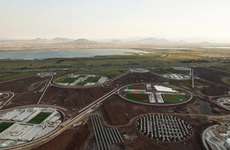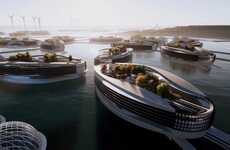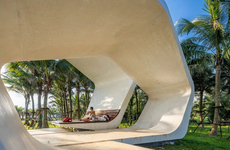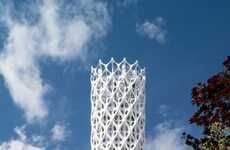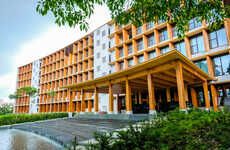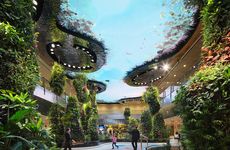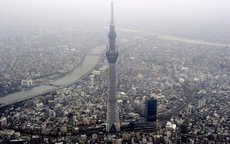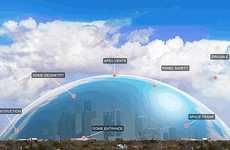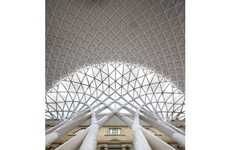
Singapore and China Team Up for Tianjin
Marissa Brassfield — October 10, 2008 — Eco
References: straitstimes & treehugger
The construction of Tianjin, an eco-city developed by China and Singapore, has just broken ground. The 30 square kilometer site will eventually house 350,000 people in an effort to balance active commerce and environmentally conscious living.
The Tianjin Eco-City site is atop a series of low-quality salt flats located about 40 kilometers from the present city of Tianjin. Since these salt flats cannot be used for agriculture, as Tree Hugger reports, they will be reclaimed to build the Tianjin Eco-City. China is counting on Singapore to help the Tianjin development run solely on clean energy--both solar and wind power will be used. In addition, Tianjin will recycle rainwater, desalinize seawater and utilize greywater recycling.
The Tianjin Eco-City site is atop a series of low-quality salt flats located about 40 kilometers from the present city of Tianjin. Since these salt flats cannot be used for agriculture, as Tree Hugger reports, they will be reclaimed to build the Tianjin Eco-City. China is counting on Singapore to help the Tianjin development run solely on clean energy--both solar and wind power will be used. In addition, Tianjin will recycle rainwater, desalinize seawater and utilize greywater recycling.
Trend Themes
1. Eco-cities - Constructing eco-friendly cities that balance commerce with environmental sustainability is a growing trend.
2. Clean Energy - Developing cities that run solely on clean energy such as solar and wind power is a key trend for sustainable urban development.
3. Water Management - Efficient and sustainable water management systems such as rainwater recycling and desalinization are important trends for eco-city development.
Industry Implications
1. Construction - The construction industry can innovate cost-effective and efficient methods to build and reclaim land for eco-city development.
2. Renewable Energy - The renewable energy industry can develop technology and infrastructure to provide clean energy solutions for eco-city development.
3. Water Treatment - The water treatment industry can innovate efficient and sustainable systems to recycle and desalinize water for eco-city development.
3.4
Score
Popularity
Activity
Freshness


